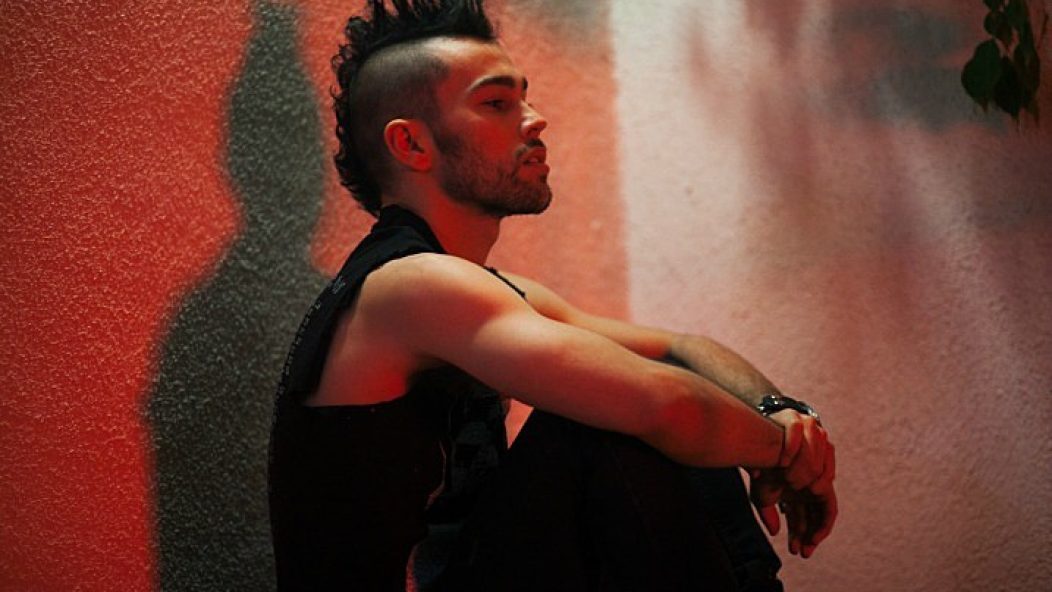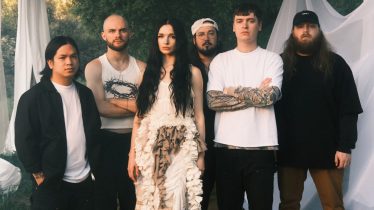
Meet MAX—the pop artist backed by Pete Wentz
It’s been a big year for solo artist MAX: He’s been on tour with Fall Out Boy, got signed to DCD2 (repped by the one and only Pete Wentz) and is about to release his debut full-length, Hell’s Kitchen Angel. We convinced him to take a break from his avid Snapchatting career (follow him @maxgschneider) to talk remixes, influences and… a side project with Rancid?

Being signed to Pete Wentz’s label has to have a big influence on you. How has that been, and how has his involvement played into the record?
MAX SCHNEIDER: It’s been really amazing. I joined the label because I’ve always seen how involved everyone is. It doesn’t really feel like a label. With Pete, whether it’s being in a music video, or listening to the next song that we’re putting out or whatever it is, there’s such a collaborative vibe throughout. It goes the same with everybody—every band. People are in each other’s videos, people are going to each other’s shows, and it’s really nice to have that community.
When you do a solo thing, [you] latch onto having people around [you] that [you] trust, and having that support. I never really fit in one box, I guess. My music always stays the same, but I just kind of collaborate with these different acts that maybe people didn’t necessarily expect, and that was a big one when signing with Pete and touring with Fall Out Boy. I think a lot of people didn’t expect it, but it just felt right.
“…I just kind of collaborate with these different acts that maybe people didn’t necessarily expect, and that was a big one when signing with Pete and touring with Fall Out Boy. I think a lot of people didn’t expect it, but it just felt right.”
There’s even more Fall Out Boy involvement, with Patrick Stump’s remix on Gibberish.
It’s been awesome to have Patrick do the remix of “Gibberish,” because being on tour together was amazing. I got to know him a bit, but it’s a whole other thing when you’re getting in a room and actually working on a song. I wrote a song on the album called “10 Victoria’s Secret Models” with Patrick, and that was an incredible experience because his writing style is unlike anybody I’ve ever worked with before. He just wanted me to tell him stories. We just talked for hours. He wanted me to tell him everything going on in my life, and then he was like, “I want you to leave, and then I want you to come back, and I want us to get through this, because I just want to see what you’ve said and go from there.” I came back and he said, “You said something about being with this girl and how it didn’t matter if 10 Victoria Secret’s models came in, you wouldn’t be able to take your eyes off of her.” And I was like, “Wow, I definitely wouldn’t have thought of that line or written that if you hadn’t heard me say it in some story.” It was one of my favorite songs on the record to write.
How was the writing process as a whole?
For me, I like to trust my first instinct, but I also go back a lot. I feel like once I listen a little bit, I start to find different aspects of the story or the melody. I like to start with the concept of it but really dive deeper and deeper—maybe this melody could be better, maybe this could be better… I like to tweak. [Laughs.]
Whereas on the opposite side, I have a side project with Tim Armstrong from Rancid called Wichita, and with him, if you don’t get it that first day, you move on to the next song. We’ve done probably 10 songs together, and every time we do the song that day, we write it, and then he’s like, “Okay, we’re never coming back to this.” And then we do the next song the next day. It’s not like the pressure’s on, but it’s like, if we didn’t get it that day, it wasn’t meant to be.
You’ve said Hell’s Kitchen Angel is a shout-out to your home base [Hell’s Kitchen, New York]. Where else would you say that theme comes through on the album?
Growing up in Hell’s Kitchen in New York City has been so influential to my music and my life. When you walk around New York, the diversity and culture is all around you. You’re on the subway and there’s street performance, singing, there’s different music everywhere. For me, I listened to African drumming when I was a little kid and that definitely influenced the rhythm in my music. I felt like I really wanted it to be completely representative of me. Of course everybody thinks it’s from the cooking show Hell’s Kitchen, or like a Daredevil reference or something, so I keep being like, “Nah… it’s actually a neighborhood.” [Laughs.] I think a lot of people think that’s a made up place, but of course, it’s actually where I was born and raised.
Keeping with influences, what are your influences from our scene specifically?
I’ve always loved alt and punk rock and not even always musically what it stands for, but what it stands for as an initiative, as a whole, as a personality. It’s really just the thought of being down to do a show outside of a bus for 80 people in Idaho—which we did on this [past] tour, because the show got canceled. That’s the punk rock mentality that I’ve always been all about. It’s like: Do the show in the middle of the street. Do the busking thing. I think it’s kind of lost in the pop circuit, because it’s always about doing the “big show” or what’s on the radio. And that’s cool, but I think that a big thing in music that happens in [the alt] world is really bringing it to the people.
Musically—obviously, I’ve always been the biggest Fall Out Boy fan. All those records were hugely influential to me. And I’ve always been the biggest Panic! fan, too—I think Brendon’s one of the best frontmen. For me, the music in the scene is about people who just go for it, who just leave it all on that stage and are just absolutely crazy. I think that’s something that’s amazing in the scene and in punk rock.








